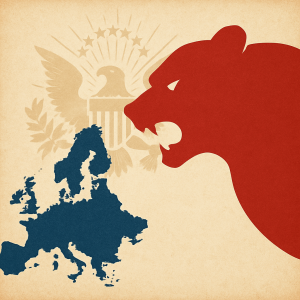We do not know. We no longer know if the division of China into two states separated by a strait and opposing regimes can be overcome without the conflict becoming international. We no longer know because Xi Jinping’s navy is approaching the Taiwanese coast more and more often, his fighter planes violate the island’s airspace up to forty or fifty times a day, and so doing the Chinese Communist Party is constantly asserting that it is at home in Taiwan.
At any moment, a military incident can occur and get out of hand. So great is the nervousness in the Formosa Strait and the South China Sea that Joe Biden last week reiterated that the defence of Taiwan would be as much a US “commitment” as that of South Korea or Japan.
The White House immediately clarified that US policy had in fact “not changed”. This just meant that the United States would continue to provide democratic China with the means to defend itself without automatically becoming a party to a possible war between the two Chinas, but the fact remains that Taiwan could now become the Sarajevo of the 21st century and it would be illusory to imagine that the European Union could then remain on the sidelines of what would become a global battle between dictatorship and democracy.
The Union could not remain idle with arms “at attention” any longer than the United States did at the beginning of the Second World War, and the question for the Union is therefore how to position itself in this crisis in order to be able to harness its dynamics.
To that end, the Union would have to do five things.
The first would be to acknowledge that Xi Jinping, when he says that Taiwan is part of China of which it is a province, is almost right, since there was and will one day be only one China. Just as the two Germanys were destined to unite and the two Koreas will one day do so, the two Chinas are one and the same country, now divided but nonetheless a single one, and this must be reaffirmed by the 27 for the simple reason that it is an obvious fact that, by the way, even Taiwan is careful not to dispute.
The Union would then have to recall that the legitimacy of a regime is not to be measured by the size of the territory and population it controls, that Beijing has no more claim to embody China than Taipei does, that the 27 States of the Union have every reason to feel closer to Taiwan than to the People’ s Republic of China, and that their solidarity with the Taiwanese would be full and complete in the face of any attempt of conquest launched from the continent.
Thirdly, the Union should note that Communist China has just killed the idea of a two-system country in Hong Kong, which can no longer be the basis for a unification of the two Chinas.
Fourthly, the Union should declare that it does not consider that an aggression by mainland China against Taiwan should lead to the Atlantic Alliance going to war against Beijing; that the 27 would not take part in such an extension of the conflict and that they would advise the United States against doing so because the volume and sophistication of the weapons systems now forbids humanity to risk its annihilation in a Third World War.
As for the fifth thing the Union should do is to lead the entire world’s democracies to warn Communist China that they would immediately cut off all trade relations with it if it tried to invade Taiwan.
This would be a far more credible threat than going to war, and one that Mr Xi would be likely to take seriously if the Western and Asian democracies were aware that Beijing would not be the only one to suffer from such a measure but it would also incur a cost for themselves.
The democracies would face shortages, higher unemployment and lower living standards, but besides the fact that the consequences of a boycott of Communist China would be far more serious for the Beijing regime, they would be infinitely less painful for everyone than those of a general conflagration.
If only it wants to, the EU can make a difference in this crisis and could do so in many other crises as well.



